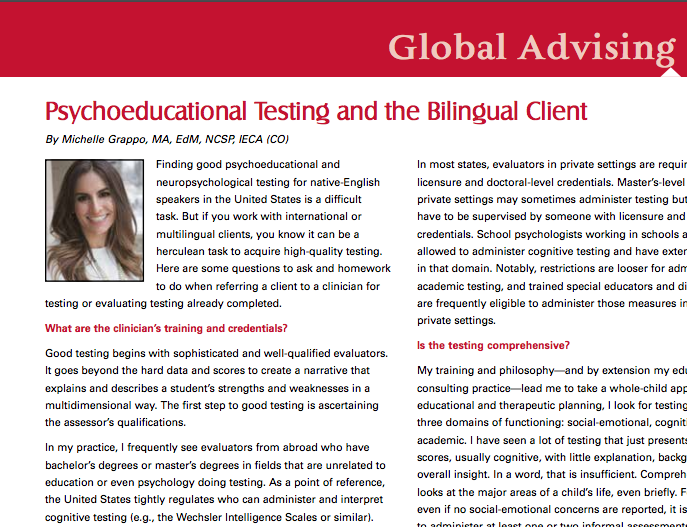Check out Michelle’s latest article, which appears in our monthly educational consultant newsletter, IECA Insights. She explores the process of getting high-quality psychoeducational assessment, e.g. psychological testing for learning disabilities, for non-native English speakers.
Here’s a snippet!
Finding good psychoeducational and neuropsychological testing in the United States for native-English speakers is a difficult task. But if you work with international, bilingual, or multilingual clients, you know it can be a herculean task to acquire high-quality testing. Here are some questions to ask and homework to do when referring to a clinician for testing or evaluating testing already completed.
What is the clinician’s training and credentials?
Good testing begins with sophisticated and well-qualified evaluators. Good testing goes beyond the hard data and scores to create a narrative that explains and describes a student’s strengths and weaknesses in a multidimensional way. The first step to good testing is ascertaining the assessor’s qualifications.
In our practice, we frequently see evaluators from abroad doing testing with Bachelor’s degrees or masters degrees in fields unrelated to education or even psychology. As a point of reference, in the United States we tightly regulate who can administer and interpret cognitive testing (e.g. the Wechsler Intelligence Scales or similar). In most states, evaluators in private settings are required to have licensure and doctoral-level credentials. Masters-level clinicians in private settings may sometimes administer testing but will likely have to be supervised by someone with licensure and doctoral-level credentials. School psychologists working in schools are typically allowed to administer cognitive testing, and have extensive training in this domain. Notably, restrictions are looser for administering academic testing, and trained special educators and diagnosticians are frequently eligible to administer these measures in schools and private settings.
Is the testing comprehensive?
My training and philosophy, and by extension our educational consulting practice, takes a whole-child approach.
Click here to read more on page 15! https://www.iecaonline.com/wp-content/uploads/2017/04/Insights-August-September-2017.pdf
Contact Michelle here for personalized advice on getting high-quality testing for your child.














